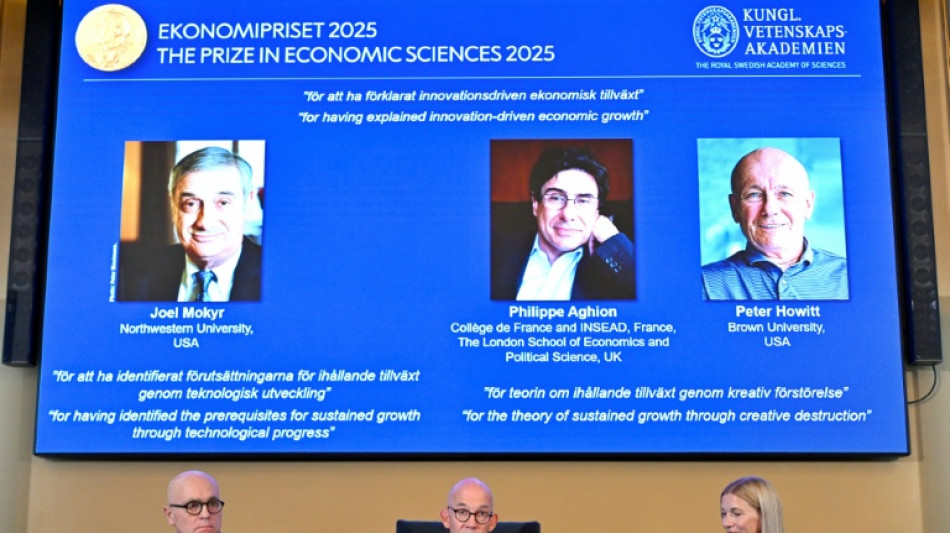
-
 NFL suspends Lions safety Branch for post-game scuffle
NFL suspends Lions safety Branch for post-game scuffle
-
Cape Verde erupts in celebration after first World Cup qualification

-
 France held in Iceland as Germany and Belgium close on 2026 World Cup
France held in Iceland as Germany and Belgium close on 2026 World Cup
-
Madagascar's cornered president ignores calls to resign
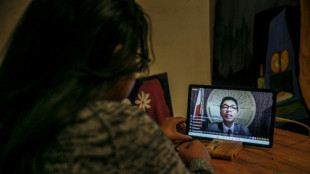
-
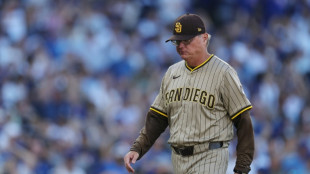 MLB Padres manager Shildt retires over job's 'severe toll'
MLB Padres manager Shildt retires over job's 'severe toll'
-
NFL Titans fire Callahan as coach after 1-5 start
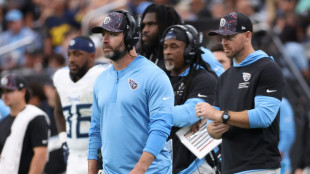
-
 Mateta off mark but France held by Iceland in World Cup qualifying
Mateta off mark but France held by Iceland in World Cup qualifying
-
Wall Street stocks bounce after Trump-fueled slide
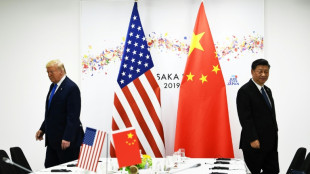
-
 De Bruyne's penalty double fires Belgium to vital win over Wales
De Bruyne's penalty double fires Belgium to vital win over Wales
-
Woltemade header sends Germany past Northern Ireland

-
 Trump takes victory lap in the Middle East
Trump takes victory lap in the Middle East
-
Brazil hopes Amazon summit can unite world for climate action
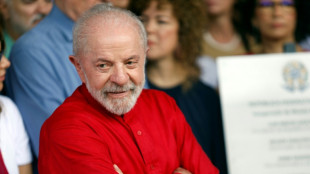
-
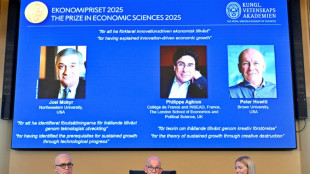 Nobel economist warns of AI dangers
Nobel economist warns of AI dangers
-
Kane available to face Latvia as England aim to book World Cup place

-
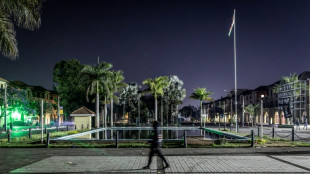 Madagascar on edge as embattled president's address delayed
Madagascar on edge as embattled president's address delayed
-
Trump calls Italian PM 'beautiful' at Gaza summit
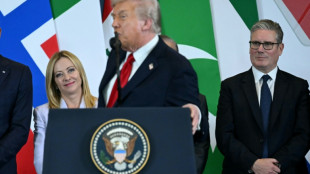
-
 Historic World Cup qualification for Cape Verde islanders
Historic World Cup qualification for Cape Verde islanders
-
Lyles and McLaughlin Levrone nominated for World Athletics awards

-
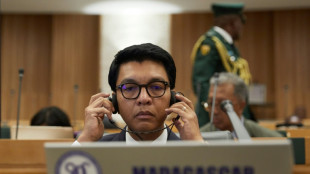 Embattled Madagascar president delays national address, again
Embattled Madagascar president delays national address, again
-
California enacts first US law requiring AI chatbot safety measures

-
 SpaceX to launch Starship test flight Monday
SpaceX to launch Starship test flight Monday
-
Trump hails 'tremendous day for Middle East' as leaders sign Gaza declaration

-
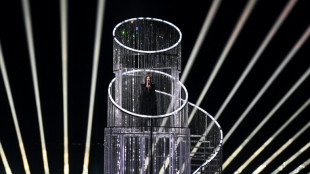 Eurovision organisers push back Israel decision to December
Eurovision organisers push back Israel decision to December
-
Italy's Gattuso 'very happy' at Gaza peace deal ahead of World Cup qualifier with Israel

-
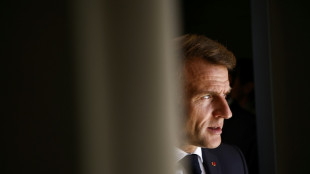 Macron slams French opposition for fuelling political 'chaos'
Macron slams French opposition for fuelling political 'chaos'
-
Woody Allen says world 'drearier' without ex-partner Diane Keaton
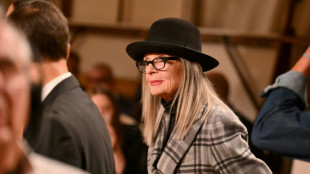
-
 Celebrations in Madagascar streets ahead of embattled president's address
Celebrations in Madagascar streets ahead of embattled president's address
-
England's Millie Bright retires from international football

-
 Freed Israeli hostages hug loved ones in tears of joy
Freed Israeli hostages hug loved ones in tears of joy
-
'Historic dawn': Trump takes victory lap in Israel

-
 'New birth': Palestinians freed from Israeli jails return to loved ones
'New birth': Palestinians freed from Israeli jails return to loved ones
-
Wall Street stocks rebound after Trump-fuelled slide
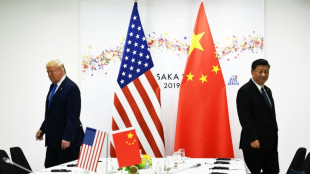
-
 Stay still and don't wear yellow: UK filmmakers on working with hawks
Stay still and don't wear yellow: UK filmmakers on working with hawks
-
Trump urges pardon for Netanyahu over 'cigars and champagne'

-
 IMF meetings to start under fresh cloud of US-China trade tensions
IMF meetings to start under fresh cloud of US-China trade tensions
-
Noman derails South Africa to 216-6 in first Pakistan Test

-
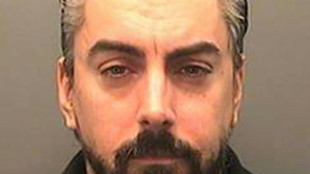 Two men charged with prison murder of Lostprophets singer
Two men charged with prison murder of Lostprophets singer
-
Five killed as Pakistan police clear anti-Israel protest site
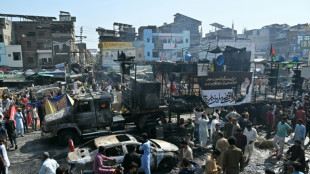
-
 India close in on Test series sweep despite West Indies fightback
India close in on Test series sweep despite West Indies fightback
-
Europe cannot let US, China be 'technological leaders': Nobel laureate Aghion
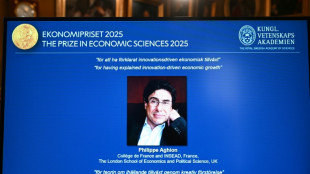
-
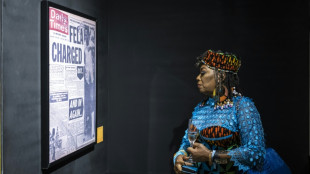 Landmark Lagos exhibition celebrates 'King of Afrobeat' Fela Kuti
Landmark Lagos exhibition celebrates 'King of Afrobeat' Fela Kuti
-
Trio wins economics Nobel for work on tech-driven growth
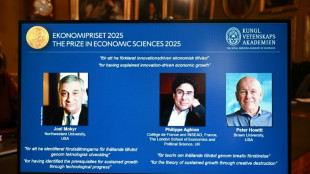
-
 India sense Test series clean sweep despite West Indies fightback
India sense Test series clean sweep despite West Indies fightback
-
Hundreds celebrate in Madagascar as president due to address nation

-
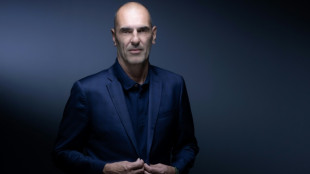 Paris Masters prepares for bow on 'second biggest court in world'
Paris Masters prepares for bow on 'second biggest court in world'
-
South Africa 112-2 after Noman's double strike in Pakistan Test

-
 Campbell, Hope hit tons as West Indies lead by 91 against India
Campbell, Hope hit tons as West Indies lead by 91 against India
-
Hamas hands over surviving Israeli hostages

-
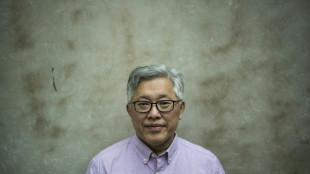 China detains prominent 'underground' pastor in crackdown
China detains prominent 'underground' pastor in crackdown
-
Ancelotti ready to make World Cup history with Brazil
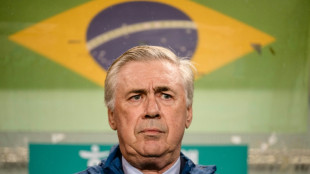

Nobel economist warns of AI dangers
A winner of this year’s Nobel prize in economics warned Monday that artificial intelligence offers "amazing possibilities" but should be regulated because of its job-destroying potential.
The remarks from Canadian Peter Howitt, professor emeritus at Brown University in the United States, came amid growing concerns about how AI will impact society and the labor market.
California Governor Gavin Newsom on Monday signed a first-of-its-kind law regulating interactions with AI chatbots, defying a push from the White House to leave the technology unchecked.
Howitt was one of three economists honored Monday by the Royal Swedish Academy of Sciences for work on how technology drives and affects growth.
His research with fellow winner Philippe Aghion of France focused on the theory of "creative destruction" in which a new and better product enters the market, and the companies selling the older products lose out.
Howitt told a news conference that it remains to be seen who will be the leader in AI, and "we don't know what the creative destruction effects are going to be."
"It's obviously a fantastic technology that has amazing possibilities. And it also obviously has an amazing potential for destroying other jobs or replacing highly skilled labor. And all I can say is that this is a conflict. It's going to have to be regulated," he said.
"Private incentives in an unregulated market are not really going to resolve this conflict in a way that's best for society, and we don't know what's going to come from it."
Howitt, 79, said it was a "big moment in human history" and likened it to past periods of technological innovation, including the telecoms boom of the 1990s, and the dawns of electricity and steam power.
He said those innovations all demonstrated how technology can enhance and not just replace labor. "How we're going to do it this time? I wish I had specific answers, but I don't," he added.
Howitt said that when he and Aghion first wrote their seminal 1992 paper on creative destruction it took five years to get it published, but his collaborator knew they were on to something special.
"Right from the beginning, from our very first research, I remember back in 1987, Philippe saying we're going to get a Nobel Prize for this. I said, 'Sure, sure, sure,'" Howitt recalled.
"He said, 'Our time will come. Our time will come,' okay, and now it’s come. Amazing."
T.Egger--VB
